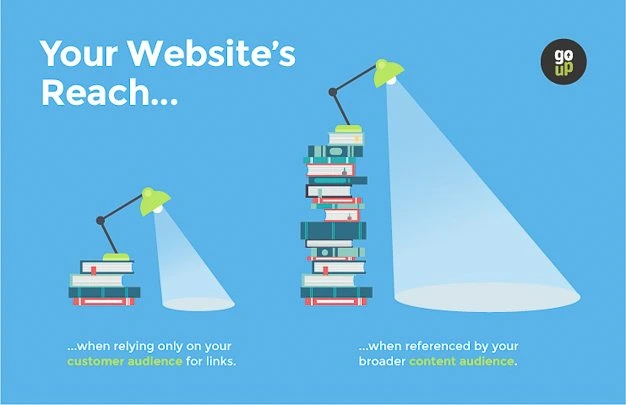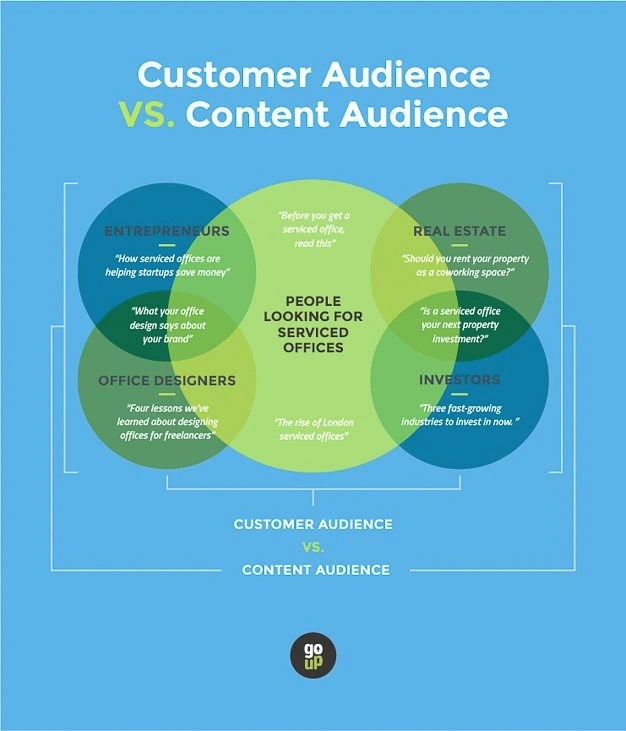
4 mins
OpenContent Marketing In The Time of COVID-19
2 mins
Effective online marketing necessitates developing and engaging with your content audience. But that audience is often not the same as a business’ customer audience. Here’s why.
7th November 2015

Because the referring websites are selected, primarily, on the basis of the authority they will transfer to your domain, these websites do not necessarily have to be platforms that are visited by your customer audience.
When we first start reporting on the links we’ve achieved for a client’s website, we often get the response: “But none of my customers are going to read this!” AND/OR: “This won’t send any traffic to my site!”
Understandably, clients are concerned about how their resources are being spent and what is being achieved. However it is also a misunderstanding of the process of SEO.
Effective online marketing necessitates developing and engaging with your content audience. But that audience is often not the same as a business’ customer audience. Here’s why.
Whilst the end goal of any SEO campaign should be to boost relevant traffic to your site, the means to this is typically not through generating referral traffic. An SEO campaign’s objective is more long-term than this. To borrow the familiar adage, SEO doesn’t coax fishes to your website, it teaches your website to fish.
An online marketing campaign improves the equity of your site by gaining referral links from high authority sites. This in turn, will lead to better visibility in search which will ensure a steady and hopefully sustainable flow of organic traffic.
 Relying only on your customer audience for backlinks will make it more difficult to rank well in search and thus limit your overall ability to reach your customer audience. On the other hand, developing a backlink portfolio that includes links from your wider content audience will boost your visibility online and ultimately improve your ability to reach your customer audience.
Relying only on your customer audience for backlinks will make it more difficult to rank well in search and thus limit your overall ability to reach your customer audience. On the other hand, developing a backlink portfolio that includes links from your wider content audience will boost your visibility online and ultimately improve your ability to reach your customer audience.
Because the referring websites are selected primarily on the basis of the authority they will transfer to your domain, these websites do not necessarily have to be platforms that are visited by your customer audience. This can initially cause confusion for some clients.
The domain equity is the factor that is most valuable for SEO. Any referral traffic that may be generated is a bonus, not a necessity.
Just because a content audience won’t lead to direct sales doesn’t make it unimportant. Your content audience can still engage with your brand in a way that is meaningful and significant for your SEO.
In an online context, recognition can translate into greater search visibility and thus a more direct route to your customer audience.
 By widening your focus to include content platforms adjacent to and overlapping with the interests of your customer audience, you’ll discover a much larger content audience that can help you develop a far richer backlink portfolio.
By widening your focus to include content platforms adjacent to and overlapping with the interests of your customer audience, you’ll discover a much larger content audience that can help you develop a far richer backlink portfolio.
Consider a budget supermarket being written about in a high-end economic paper. The supermarket is unlikely to gain any direct customers through coverage on a platform that is read primarily by business executives who rarely shop there. But the brand as a whole benefits from the increased recognition.
In an online context, this recognition can translate into greater search visibility and thus a more direct route to your customer audience.
A comprehensive onsite media strategy will create a compelling incentive for your website to be referenced by a range of high value domains. To reap the full (SEO-related) rewards of regularly posting content on your site, that content needs to go beyond being a conversation with your customer audience alone.
By sharing industry insight, commenting on trends or producing thought leadership content, your website won’t only attract visitors from its content audience but, importantly, invite valuable links.